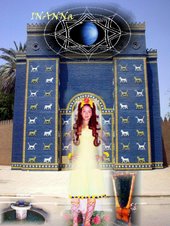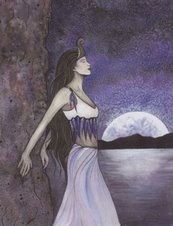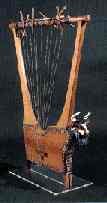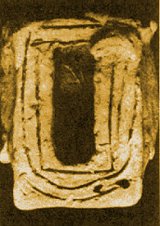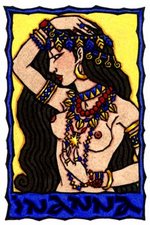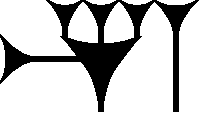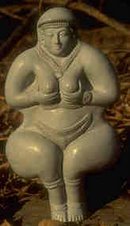Ineptitude is a strange thing. It is an insidious and subtle part of human nature. Ineptitude comes from the Latin ineptus. The quality of being inept is inherent when incompetence is demonstrated. Incompetence is being unfit for a certain arena of life, or lacking sense of reason in a certain area. In my life, I have been inept at many things. I have often been inept at sports and athleticism. I could extend this ineptness to many parts of my personal life. I have many faults and am a very emotional person. This colors parts of my life that should remain a more neutral tone according to our societal standards, perhaps taupe as opposed to a “multitudinous seas incarnadine.”
I realized certain aspects of me were lacking throughout childhood. As a hypothesized adult, the long arm of ineptitude reaches far into the depths of psyche and reason. Frustration towards the absolute other is frustration at one’s own inability to conceptualize an understanding about the other. If this were to be visually exemplified as the yin-yang symbol, the symbol would be missing the two small dots that are so vital.
What is important here is a feeling of well-being without a sense of dread. There is the glory and the thrill of excelling at a topic, of being a champion, or a well-awarded and well-renowned blue ribbon owner. When this is not within reach, a feeling of adequacy is necessary for happiness and comfort. Comfort itself is not necessary, but experience has taught me that it is better than the alternative.
Soul-searching is a difficult process because it involves looking at oneself to try and find the real person behind the masks that are necessary for protection. Protection from what, you may ask. Protection from having to find out who you really are. When you find out who you really are, then it is an arduous task, fit for a Buddhist monk. After some quick soul searching, more search-engine like than a meta-search tool, I skimmed the results and found these: I am a person with free will. If I have willfully demonstrated incompetence, I must have wanted it to appear that way. This is at odds with my nature to want to please people. This dichotomy of ineptitude vs. gratification is one that needs resolution for my current state of being to improve.
The current resolution is a discovery that perhaps I need to reevaluate my goals, hopes and dreams. I have many gifts to compensate my faults. These gifts need to be examined more closely to realize their worth. I have a gift that I share with humankind, to speak my mind freely and to derive pleasure from it, to utilize my unique voice in a way that speaks out to others. I would like to influence people with my work in a positive way. I would like someone to read my work and have it touch them in a meaningful way. I would like to have more of my work published so that others can read it. That moment of clarity when you read someone’s work and it speaks directly to you, I would like for someone, someday to experience that in my writing.
Thursday, March 15, 2007
Euphrates in the Bible
A river named Perath (Hebrew for Euphrates) is one of the four rivers that flow from the Garden of Eden according to Genesis 2:14. This Hebrew word, derived from either the word "stream" or "to break forth", has been translated as Euphrates. It is the fourth river, after the Pishon, the Gihon, and the Tigris, (Hebrew name is Hiddekel) to form from the river flowing out of the garden. The river of the same name marked one of the boundaries of the land promised by God to Abraham and his descendants (Isaac, Jacob, etc). In the Hebrew Bible, it is often referred to simply as "The River" (ha-nahar). (Genesis 15:18).
In Revelation 16:12, it is prophesied that the Euphrates will dry up in preparation for the Battle of Armageddon.
In Revelation 16:12, it is prophesied that the Euphrates will dry up in preparation for the Battle of Armageddon.
Download Mesopotamian Music
http://www.lightbridgemusic.com/mohdl.htm
Go to the above link to download Mesopotamian music. Starburst is the only full-length clip, it is very good.
http://www.geocities.com/kurdishmusic100/
The above link has 100 hours of Kurdish music. Quite an undertaking. This amalgam of peoples and tribes continued to be known under one name by lowlanders of Mesopotamia . One of the first mentions in historical records, appears in cuneiform writings from the Sumerians dated around 3000 BCE, who referred to the "land of the Karda" in Taurus-Zagros mountains of the northern and northeastern parts of Mesopotamia, The area was referred to as the land of the "Karda" or "Qarduchi" and the land of the "Guti" or "Gutium". These are described as being the same people only differing in tribal name. The Babylonians called these people "Gardu" and "Qarda". In neighbouring area of Assyria, they were "Qurti" or "Guti". When the Greeks entered the territory, they referred to these people as either "Kardukh", "Carduchi", "Gordukh", Kyrti(oi), Romans as Cyrti. The Armenians called the Kurds "Gortukh" or "Gortai-kh" and the Persians knew them as "Gord" or "Kord". In the Syriac, Hebrew and Chaldean languages they were, respectively, "Qardu", "Kurdaye" and "Qurdaye". In Aramaic and Nestorian they were "Qadu".(Wikipedia).
Retrieved on March 15, 2007, from: http://en.wikipedia.org/wiki/Kurdish_people
Go to the above link to download Mesopotamian music. Starburst is the only full-length clip, it is very good.
http://www.geocities.com/kurdishmusic100/
The above link has 100 hours of Kurdish music. Quite an undertaking. This amalgam of peoples and tribes continued to be known under one name by lowlanders of Mesopotamia . One of the first mentions in historical records, appears in cuneiform writings from the Sumerians dated around 3000 BCE, who referred to the "land of the Karda" in Taurus-Zagros mountains of the northern and northeastern parts of Mesopotamia, The area was referred to as the land of the "Karda" or "Qarduchi" and the land of the "Guti" or "Gutium". These are described as being the same people only differing in tribal name. The Babylonians called these people "Gardu" and "Qarda". In neighbouring area of Assyria, they were "Qurti" or "Guti". When the Greeks entered the territory, they referred to these people as either "Kardukh", "Carduchi", "Gordukh", Kyrti(oi), Romans as Cyrti. The Armenians called the Kurds "Gortukh" or "Gortai-kh" and the Persians knew them as "Gord" or "Kord". In the Syriac, Hebrew and Chaldean languages they were, respectively, "Qardu", "Kurdaye" and "Qurdaye". In Aramaic and Nestorian they were "Qadu".(Wikipedia).
Retrieved on March 15, 2007, from: http://en.wikipedia.org/wiki/Kurdish_people
Sumerian Music
In Sumer the Bull was a symbol of fertility and divine power. This Sumerian lyre (2600 BC) is made of gold and lapis lazuli and has a plaited beard-a plaited beard was sometimes a sign of divinity. This lyre was fashioned into the shape of a bull. The bull's body acts as the soundbox. There have been other lyres found in the shape of bull's horns, with strings stretched between those horns.
Before playing a stringed instrument, the musicians would wash their hands to purify them. Many of the songs were for the Goddess Innana.
Dancing girls used clappers to provide rhythm...and eventually drums and wind instruments made their appearance as well.
We know that music and dancing were a part of daily celebration and temple rites-music was played for marriages and births in the royal families. Music was also used to back up the recitation of poetry, as in Greece.
Musicians had special training. They had their own schools and formed an important professional class in Mesopotamia.
Thanks to http://www.dl.ket.org/humanities/connections/class/ancient/mesopmusic.htm
Before playing a stringed instrument, the musicians would wash their hands to purify them. Many of the songs were for the Goddess Innana.
Dancing girls used clappers to provide rhythm...and eventually drums and wind instruments made their appearance as well.
We know that music and dancing were a part of daily celebration and temple rites-music was played for marriages and births in the royal families. Music was also used to back up the recitation of poetry, as in Greece.
Musicians had special training. They had their own schools and formed an important professional class in Mesopotamia.
Thanks to http://www.dl.ket.org/humanities/connections/class/ancient/mesopmusic.htm
Wednesday, March 7, 2007
Feel free to act this out at home!
THE COURTSHIP OF INANNA AND DUMUZI
Utu, the Son God: The brother spoke to this younger sister The Sun God, Utu, spoke to Inanna, saying: 'Young Lady, the flax in its fullness is lovely, Inanna, the grain is glistening in the furrow. I will hoe it for you, I will bring it to you A piece of linen, big or small, is always needed. Inanna, I will bring it to you.'
Inanna: 'Brother, after you've brought me the flax, who will comb it for me?
Utu: Sister, I will bring it to you combed.'
Inanna: 'Utu, after you've brought it to me combed, who will spin it for me?
Utu: 'Sister, I will bring it to you spun.'
Inanna: 'Brother, after you've brought the flax to me spun, who will braid it for me?
Utu: 'Sister, I will bring it to you braided.'
Inanna: 'Utu, after you've brought it to me braided, who will warp it for me?'
Utu: 'Inanna, I will bring it to you warped.'
Inanna:'Brother, after you've brought the flax to me warped, who will weave it for me?'
Utu: 'Sister, I will bring it to you woven.'
Inanna: 'Utu, after you've brought it to me woven, who will bleach it for me?'
Utu: 'Inanna, I will bring it to you bleached.'
Inanna: 'Brother, after you've brought my bridal sheet to me, Who will go to bed with me? Utu, who will go to bed with me?'
Utu: 'Sister, your bridegroom will go to be with you He who was born from a fertile womb, He who was conceived on the sacred marriage throne Dumuzi, the shepherd! He will go to bed with you.'
(The couple acts out the words told by the Narrator)
Narrator: Inanna bathed and annointed herself with scented oil. She covered her body with the royal robe She arranged her precious lapis beads around her neck She took the royal seal in her hand Dumuzi waited expectantly Inanna opened the door for him Inside the house she shone before him Like the light of the moon Dumuzi looked at her joyously, he pressed his neck close against hers, he kissed her
Inanna: 'Let the bed that rejoices the heart be prepared! Let the bed that sweetens the loins be prepared! Let the bed of kingship be prepared! Let the bed of queenship be prepared! Let the royal bed be prepared!' Inanna spreads the bridal sheet across the bed: 'The bed is ready! 'The bed is waiting!'
Inanna (Dance: lines read out) 'What I tell you, let the singer weave into song What I tell you, let it flow from ear to mouth Let it pass from old to young. 'My vulva, the horn, the Boat of Heaven, Is full of eagerness like the young moon As for me, Inanna, who will plow my vulva? Who will plow my high field? Who will plow my wet ground? As for me, the young woman, who will plow my vulva?
Dumuzi: 'Great Lady, the king will plow your vulva. I, Dumuzi, the King, will plow your vulva!'
Inanna: 'Then plow my vulva, man of my heart! Plow my vulva!'
Dumuzi: 'O Lady, your breast is your field Inanna, your breast is your field. Your broad field pours out plants Your broad field pours out grain. Water flows from on high for your servant Bread flows from on high for your servant Pour it out for me, Inanna, I will drink all you offer!
Inanna: 'I bathed for the wild bull I bathed for the shepherd Dumuzi Now I will caress my high priest on the bed I will caress the faithful shepherd Dumuzi I will decree a sweet fate for him!'
Narrator: The Queen of Heaven who was presented the Sacred Measures by Enki Inanna, the first daughter of the moon, decreed the fate of Dumuzi.
Inanna: 'In battle, I am your leader In combat, I am your armour-bearer In the assembly, I am your advocate On the campaign, I am your inspiration You, the chosen shepherd of the holy shrine You, the king, the faithful provider of Uruk, You, the light of An's great shrine In all ways you are fit To hold your head high on the lofty dais To sit on the lapis lazuli throne To cover your head with the holy crown To wear long clothes on your body To bind yourself with the garment of kingship To race on the road with the holy sceptre in your hand And the holy sandals on you feet You, the sprinter, the chosen shepherd In all ways I find you fit May your heart enjoy long days. That which An determined for you - may it not be altered That which Enlil has granted - may it not be altered You are the favourite of Ningal Inanna holds you dear.'
Narrator: Ninshubur, the faithful servant of the holy shrine of Uruk Led Dumuzi to the sweet thighs of Inanna and spoke:
Ninshubur (taking Dumuzi's hand and placing it in Inanna's) 'My queen, here is the choice of your heart The king, your beloved bridegroom May he spend long days in the sweetness of your holy loins Give him a favourable and glorious reign! O my Queen of Heaven and Earth Queen of all the Universe May he enjoy long days in the sweetness of your holy loins!'
Narrator: The king went with lifted head on the holy loins Dumuzi went with lifted head to the loins of Inanna He went to the Queen with lifted head He opened his arms to the holy Priestess of Heaven
Information thanks to http://www.gatewaystobabylon.com/myths/texts/inanna/ts94.htm
Utu, the Son God: The brother spoke to this younger sister The Sun God, Utu, spoke to Inanna, saying: 'Young Lady, the flax in its fullness is lovely, Inanna, the grain is glistening in the furrow. I will hoe it for you, I will bring it to you A piece of linen, big or small, is always needed. Inanna, I will bring it to you.'
Inanna: 'Brother, after you've brought me the flax, who will comb it for me?
Utu: Sister, I will bring it to you combed.'
Inanna: 'Utu, after you've brought it to me combed, who will spin it for me?
Utu: 'Sister, I will bring it to you spun.'
Inanna: 'Brother, after you've brought the flax to me spun, who will braid it for me?
Utu: 'Sister, I will bring it to you braided.'
Inanna: 'Utu, after you've brought it to me braided, who will warp it for me?'
Utu: 'Inanna, I will bring it to you warped.'
Inanna:'Brother, after you've brought the flax to me warped, who will weave it for me?'
Utu: 'Sister, I will bring it to you woven.'
Inanna: 'Utu, after you've brought it to me woven, who will bleach it for me?'
Utu: 'Inanna, I will bring it to you bleached.'
Inanna: 'Brother, after you've brought my bridal sheet to me, Who will go to bed with me? Utu, who will go to bed with me?'
Utu: 'Sister, your bridegroom will go to be with you He who was born from a fertile womb, He who was conceived on the sacred marriage throne Dumuzi, the shepherd! He will go to bed with you.'
(The couple acts out the words told by the Narrator)
Narrator: Inanna bathed and annointed herself with scented oil. She covered her body with the royal robe She arranged her precious lapis beads around her neck She took the royal seal in her hand Dumuzi waited expectantly Inanna opened the door for him Inside the house she shone before him Like the light of the moon Dumuzi looked at her joyously, he pressed his neck close against hers, he kissed her
Inanna: 'Let the bed that rejoices the heart be prepared! Let the bed that sweetens the loins be prepared! Let the bed of kingship be prepared! Let the bed of queenship be prepared! Let the royal bed be prepared!' Inanna spreads the bridal sheet across the bed: 'The bed is ready! 'The bed is waiting!'
Inanna (Dance: lines read out) 'What I tell you, let the singer weave into song What I tell you, let it flow from ear to mouth Let it pass from old to young. 'My vulva, the horn, the Boat of Heaven, Is full of eagerness like the young moon As for me, Inanna, who will plow my vulva? Who will plow my high field? Who will plow my wet ground? As for me, the young woman, who will plow my vulva?
Dumuzi: 'Great Lady, the king will plow your vulva. I, Dumuzi, the King, will plow your vulva!'
Inanna: 'Then plow my vulva, man of my heart! Plow my vulva!'
Dumuzi: 'O Lady, your breast is your field Inanna, your breast is your field. Your broad field pours out plants Your broad field pours out grain. Water flows from on high for your servant Bread flows from on high for your servant Pour it out for me, Inanna, I will drink all you offer!
Inanna: 'I bathed for the wild bull I bathed for the shepherd Dumuzi Now I will caress my high priest on the bed I will caress the faithful shepherd Dumuzi I will decree a sweet fate for him!'
Narrator: The Queen of Heaven who was presented the Sacred Measures by Enki Inanna, the first daughter of the moon, decreed the fate of Dumuzi.
Inanna: 'In battle, I am your leader In combat, I am your armour-bearer In the assembly, I am your advocate On the campaign, I am your inspiration You, the chosen shepherd of the holy shrine You, the king, the faithful provider of Uruk, You, the light of An's great shrine In all ways you are fit To hold your head high on the lofty dais To sit on the lapis lazuli throne To cover your head with the holy crown To wear long clothes on your body To bind yourself with the garment of kingship To race on the road with the holy sceptre in your hand And the holy sandals on you feet You, the sprinter, the chosen shepherd In all ways I find you fit May your heart enjoy long days. That which An determined for you - may it not be altered That which Enlil has granted - may it not be altered You are the favourite of Ningal Inanna holds you dear.'
Narrator: Ninshubur, the faithful servant of the holy shrine of Uruk Led Dumuzi to the sweet thighs of Inanna and spoke:
Ninshubur (taking Dumuzi's hand and placing it in Inanna's) 'My queen, here is the choice of your heart The king, your beloved bridegroom May he spend long days in the sweetness of your holy loins Give him a favourable and glorious reign! O my Queen of Heaven and Earth Queen of all the Universe May he enjoy long days in the sweetness of your holy loins!'
Narrator: The king went with lifted head on the holy loins Dumuzi went with lifted head to the loins of Inanna He went to the Queen with lifted head He opened his arms to the holy Priestess of Heaven
Information thanks to http://www.gatewaystobabylon.com/myths/texts/inanna/ts94.htm
Subscribe to:
Comments (Atom)
